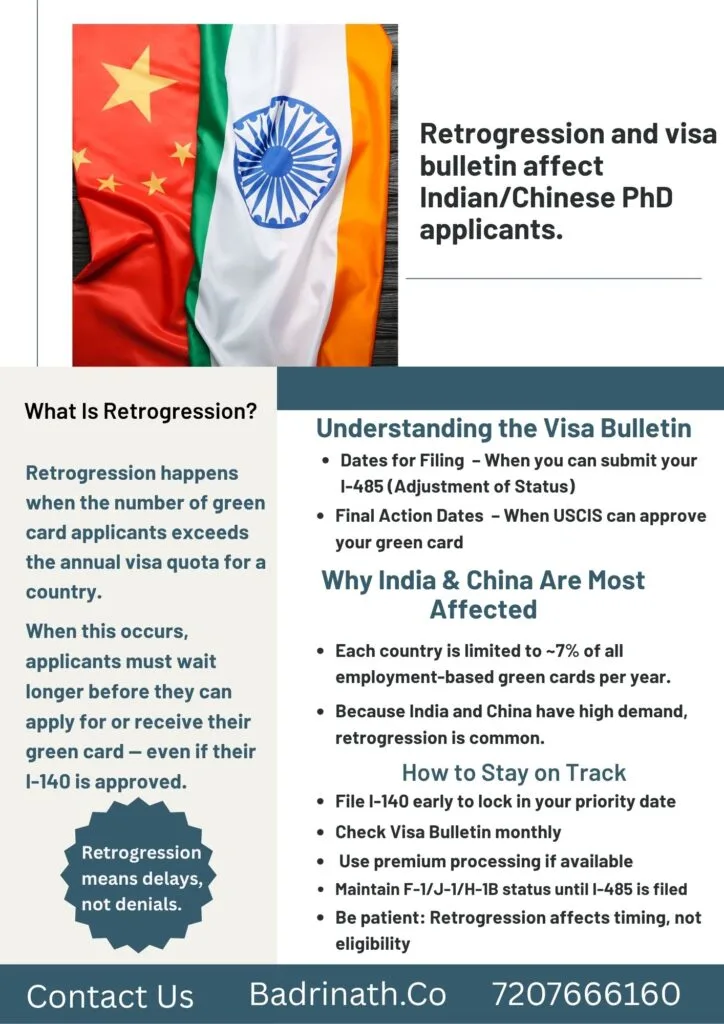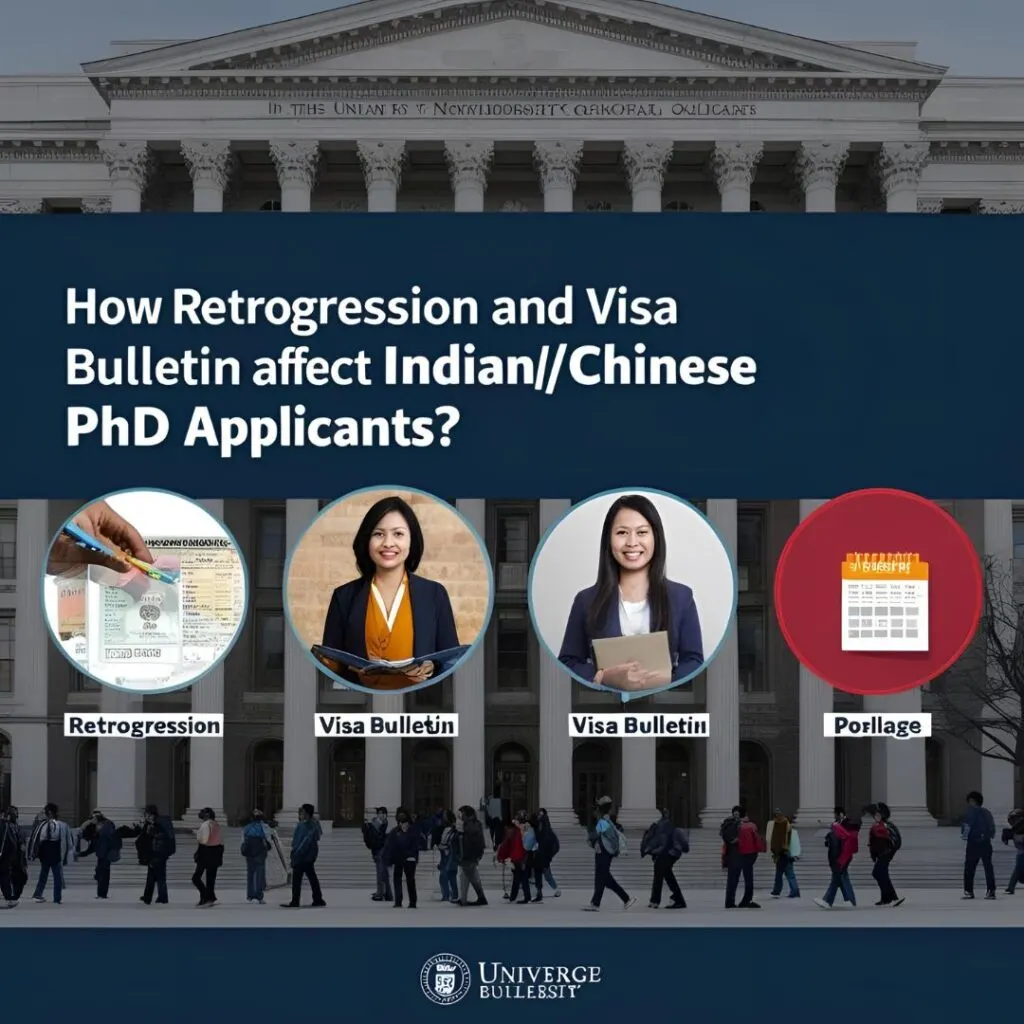PhD graduates
PhD graduates from India and China pursuing permanent residency in the United States face unique challenges due to visa retrogression, a phenomenon that significantly impacts their immigration timeline. This issue affects thousands of highly qualified professionals every year, creating uncertainty in their career paths and life planning.

Understanding Visa Retrogression
Visa retrogression occurs when priority dates in the monthly Visa Bulletin move backward instead of forward. This happens when demand for visas exceeds the annual allocation set by Congress, forcing applicants who were previously eligible to wait longer for their green cards.www.jagranjosh.com For PhD graduates, this creates a frustrating situation where their immigration process essentially pauses despite having already secured employment and established lives in the United States.
The Visa Bulletin System
The U.S. Department of State publishes a monthly Visa Bulletin that determines which applicants can proceed with their applications based on priority dates. These priority dates correspond to when an applicant initially submitted their green card petition to USCIS.eb5visainvestments.com For PhD graduates, the priority date is typically when their employer files the I-140 petition.
Impact on Indian and Chinese PhD Applicants
PhD graduates from India and China are predominantly affected in the following ways:
Employment-Based Category Limitations
Most PhD holders apply through the EB-2 (Advanced Degree Professionals) category, which is particularly impacted for applicants from India and China due to high demand.www.jagranjosh.com Recent data shows severe retrogression for these countries – with Indian applicants experiencing wait times extending over a decade, and Chinese applicants facing similar extensive delays.
Practical Consequences
When retrogression occurs, adjustment of status applications are paused until the priority date becomes current again. This creates several challenges for PhD holders:
- Career Mobility Restrictions: While waiting for their priority date to become current, many PhD professionals feel trapped in their sponsoring positions, limiting career advancement opportunities.
- Family Planning Uncertainty: The unpredictable nature of visa availability complicates family planning, as children may “age out” of derivative benefits during extended waiting periods.
- Competitive Disadvantage: Despite equivalent qualifications, Indian and Chinese PhD holders face significant disadvantages compared to peers from other countries who can obtain permanent residency much faster.
The Numbers Behind the Backlog
The backlog situation is stark. Recent analysis estimated approximately 22,940 pre-RIA EB-5 applicants were eligible for an Unreserved visa as of October 2024, while only 11,720 visas were available for the fiscal year.iiusa.org For PhD holders in the EB-2 category, the situation is equally challenging with demand far exceeding supply.
Alternative Pathways and Strategies
PhD graduates from India and China often explore strategic alternatives:
- National Interest Waiver: Exceptional PhD researchers may qualify for the EB-2 National Interest Waiver, which eliminates the labor certification requirement but does not bypass country-specific backlogs.
- EB-1 Category: Those with extraordinary ability may qualify for the EB-1 category, which typically has shorter backlogs even for Indian and Chinese nationals.
- Set-Aside Categories: Recent reforms have created set-aside visa categories that can be more accessible, though competition for these limited spots is increasing.

Navigating Through Retrogression
For PhD holders affected by retrogression, key strategies include:
- Maintaining valid work authorization documents while waiting
- Regularly monitoring the Visa Bulletin for movement
- Considering alternative visa categories if qualifications permit
- Exploring opportunities with employers who can support EB-1 petitions
Conclusion
Visa retrogression creates significant uncertainty and extended waiting periods for Indian and Chinese PhD graduates seeking permanent residency in the United States. Despite their advanced education and valuable contributions to American innovation and research, these highly skilled professionals face immigration hurdles that their counterparts from other countries do not. Understanding the Visa Bulletin system and exploring alternative pathways becomes crucial for managing these challenges effectively.
Keywords
- Visa Bulletin retrogression India China
- Green card delays for PhD researchers
- EB-2 NIW timeline India
- EB-1A priority date China
- Adjustment of status visa bulletin
- I-140 and I-485 delay India
- PhD green card USA
- USCIS visa backlog EB-2
- EB-2 NIW vs EB-1A for Indian applicants
- Cross-chargeability green card strategy
Read More About the Topic
External Links
Visa Bulletin: EB-5 Chinese and Indian investors face retrogression
EB-5 visa backlog grows for Indians: What is retrogression and its impact?
Internal Links
Step-by-Step Filing Process: From I-140 to I-485 for Researchers







